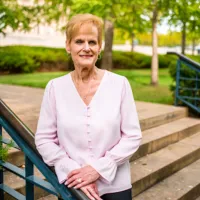
Five Common Markers of Effective Discipling Faith Communities
Every church has the same exact purpose for its existence – to form disciples who become disciple makers that transform the world. Yet, no two churches are the same. There are, however, some common markers of those faith communities who are more effective in discipling people who in turn become disciple makers. Let’s take a closer look at some of those common markers.
First and foremost, faith communities who are most effective in disciple making and the multiplication of disciples have an intentional discipleship pathway. There is a common understanding, language, and progression for people in the faith community to comprehend and easily follow for how to grow in their faith and relationship with Christ. There is a common purpose and expectation for growth as a disciple.
Second, there is intentional alignment of the ministries, events, sermons, small groups, and service opportunities to the discipleship pathway. This alignment is in the language used by the pastor, staff and ministry leaders, the next steps in discipleship maturation, and a connection of the offerings to the discipleship pathway.
Third, the overall culture of the faith community is centered on discipleship. Discipleship is helping people grow in their Christ-likeness and living it out in their daily lives. The culture of discipleship is less about membership and more about meeting people where they are and helping them develop a disciple’s lifestyle. It is a much more holistic approach that is less about the church and more about discipleship. Discipleship is relationally-driven rather than corporately driven.
Fourth, there is likely more emphasis on small groups than corporate worship. There is a growing trend of seeing more emphasis placed on helping people find authentic community where they feel comfortable having spiritual conversations. This community of people sometimes grows into a discipling community. This seems to be a more effective approach especially for those who are spiritually open but have no church experience or have some church hurt. Many people desire more of an interactive, experiential approach to exploring their faith rather than an observer approach. Therefore, some faith communities may gather for worship less frequently (i.e. monthly) and invest more resources in building relationships with new people and helping people find community.
Fifth, effective discipling faith communities are growing. Healthy organisms and organizations grow. In our current divisive culture with a mental health crisis, people are looking for lifelines, support, safe places to connect, meaning, and purpose. For many, the church, in its traditional sense, is no longer seen as that natural safe place or third place where people used to gravitate to when they were looking for help. Effective discipling faith communities are growing because they are meeting people where they are. They are willing to adapt and change their methods of how they disciple people while not diminishing the message of the Good News. They shift as needed to remain contextually relevant and relatable. They hold tightly to Biblical truth, but loosely to their current methods, traditions, and ministries.
How many of these five markers are present in your faith community? Which ones might your church be willing to adopt? Which ones might your church want to improve? What’s your first step to move towards a more effective discipling faith community today?


